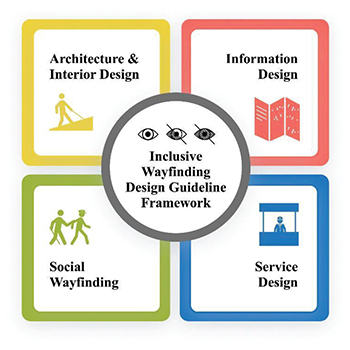This thesis deals with the wayfinding needs of people with vision impairments (PVIs) in Mumbai Suburban Railways, also called the Mumbai Local Train Commuting System (MLTCS). This suburban rail commuting system serves 7.4 million commuters daily in India's financial hub and boasts the world's highest passenger density among urban railway systems (Gardas et al., 2013). Despite being the most crowded public environment, rail commuting in India is still the most dependable and economical mode of commuting both intercity and within the city. They are the oldest, fastest, most affordable, and irreplaceable means of daily commuting, supporting the livelihoods of millions of commuters, including people with impairments. In the economically developing world, people with impairments suffer a high incidence of poverty, perpetuated by a lack of access to socioeconomic opportunities. Mumbai's suburban rail commuting system plays a vital role in alleviating poverty if it supports the mobility needs of people with impairments through an empathetic and inclusive wayfinding system design approach. Unfortunately, to date, attempts made in the direction of development focus on most travellers who are non-disabled, thus ignoring those with special needs such as mobility, sensory, and cognitive impairments (Raheja & Tyagi, 2016).
